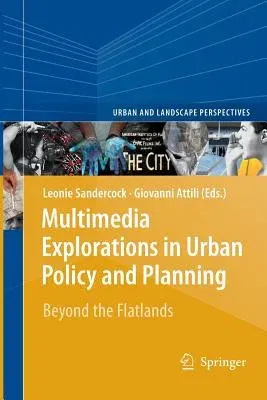Multimedia Explorations in Urban Policy and Planning: Beyond the Flatlands (2010)Paperback - 2010, 28 June 2012

Qty
1
Turbo
Ships in 2 - 3 days
In Stock
Free Delivery
Cash on Delivery
15 Days
Free Returns
Secure Checkout

Part of Series
Urban and Landscape Perspectives
Print Length
390 pages
Language
English
Publisher
Springer
Date Published
28 Jun 2012
ISBN-10
9400732198
ISBN-13
9789400732193
Description
Product Details
Book Edition:
2010
Book Format:
Paperback
Country of Origin:
NL
Date Published:
28 June 2012
Dimensions:
23.39 x
15.6 x
1.98 cm
Genre:
Urban Studies
ISBN-10:
9400732198
ISBN-13:
9789400732193
Language:
English
Location:
Dordrecht
Pages:
390
Publisher:
Weight:
530.7 gm